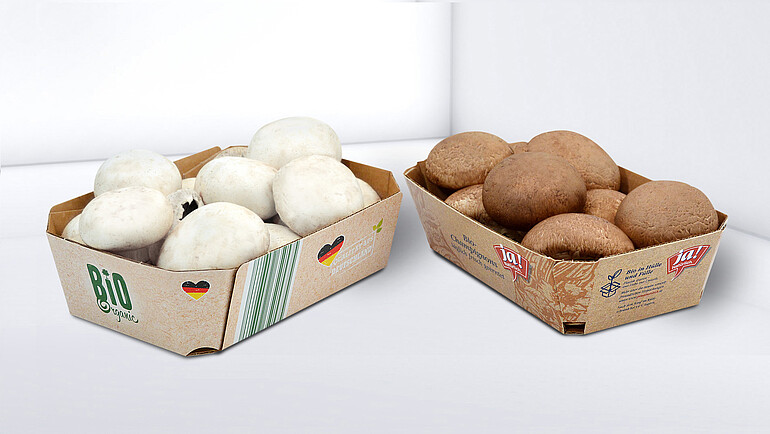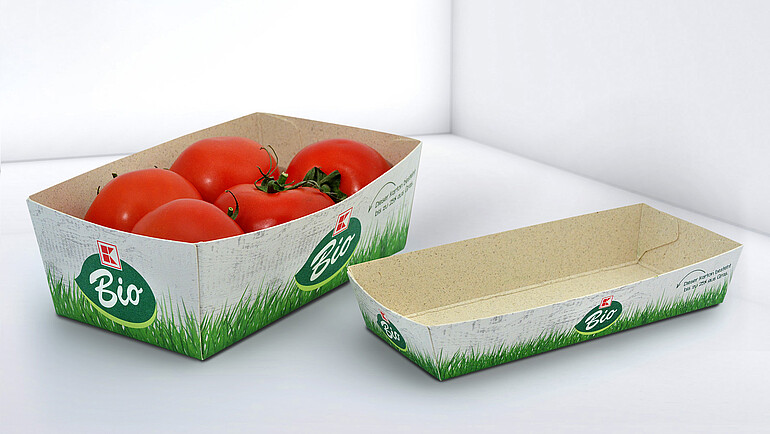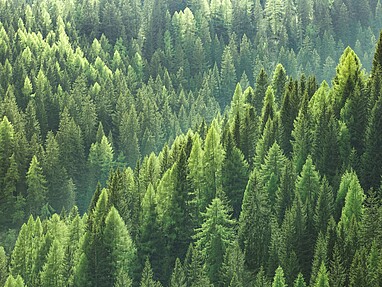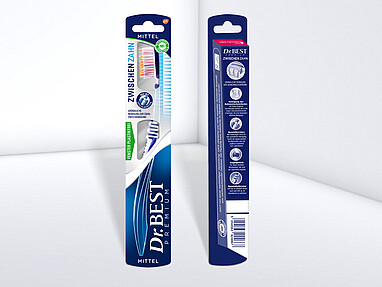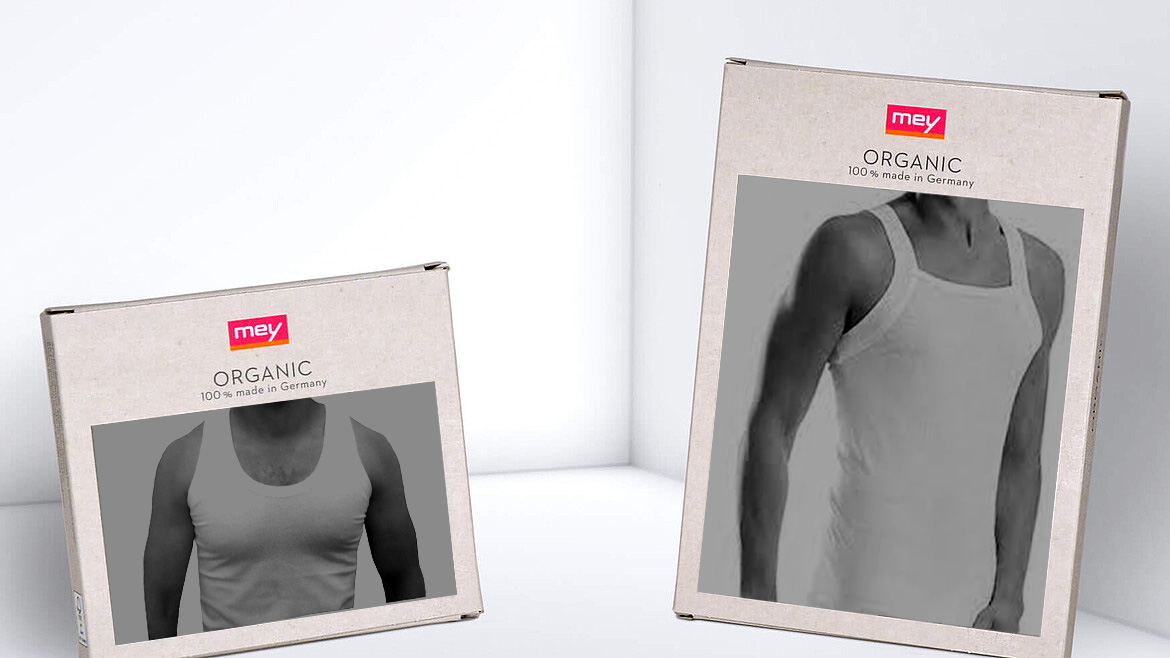"Green Revolution in Food Packaging: A Step Towards a Sustainable Future"
In today's era, environmental awareness has significantly increased, profoundly impacting the food packaging industry. Modern consumers, understanding the importance of environmental protection, demand eco-friendly packaging solutions.
This shift in perception has transformed purchasing patterns. Cardboard packaging, especially in the fruits and vegetables sector, has gained increasing popularity. Although plastic packaging still holds a substantial market share, the demand for biodegradable and responsible options is rapidly growing.
Retailers are also responding to this trend by re-evaluating their packaging strategies. They are searching for solutions that preserve product quality while causing less environmental harm.
This transformation in the packaging industry promises a future where reducing plastic consumption and enhancing environmental protection are top priorities. With technological advancements and increased public awareness, innovative and more sustainable packaging solutions for fruits and vegetables are expected to emerge, meeting consumer needs and helping to preserve our planet.
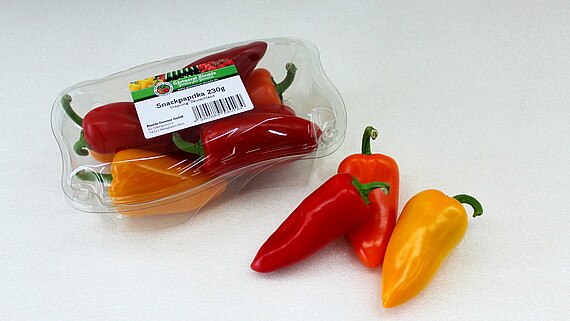
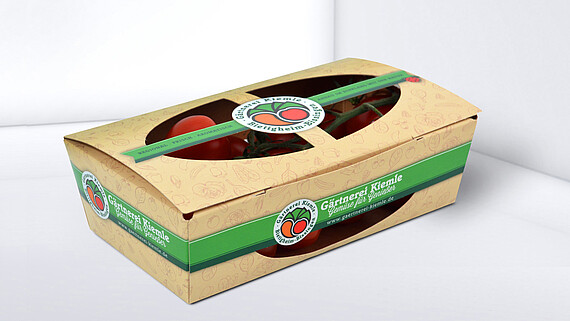
"Green Packaging: A Response to Modern Customer and Environmental Demands"
In today's world, the demand for sustainable and biodegradable packaging is dramatically increasing. This trend reflects a change in consumer preferences and their growing awareness of environmental issues.
Cardboard packaging is swiftly gaining market share from plastic packaging. Ideally made from organic materials, this type of packaging offers multiple benefits:
- Full-coverage printing: This feature provides more space for advertising messages.
- Storytelling platform: Packaging becomes a medium to tell customers the story of the product's quality and origin.
- High product protection: Modern packaging designs ensure a high degree of product protection while being environmentally friendly.
This transformation in the packaging industry signifies the convergence of consumer desires, marketing needs, and environmental requirements. Companies that can effectively combine these three elements will be better positioned to satisfy customers and maintain a competitive advantage in the market. As this trend continues, more innovations in eco-friendly packaging are expected to emerge, meeting functional needs and helping to preserve our planet.
Cardboard alternatives for fruit and vegetable packaging
Classic cardboard
No product is recycled as intensely as cardboard, corrugated cardboard and paper packaging – the recycling rate for cardboard, corrugated cardboard and paper in Europe is around 81%. Cardboard is one of the most sustainable packaging materials. It is made of wood, a renewable raw material, and is manufactured in a particularly eco-friendly way. Ensure that materials are FSC® and PEFC certified when you use them. Find out about the innovative and versatile possibilities that cardboard packaging has to offer! Packaging specialists are developing sustainable packaging concepts, including resource-conserving and minimizing material usage.
Grass cardboard
One particularly sustainable alternative for food packaging is cardboard made of grass waste sourced from compensation areas or nature reserves. If you use grass from the region, you will also enjoy a multitude of other ecological advantages: The manufacturing process is less energy-intensive, you cut CO2 emissions (by 25% compared to virgin fiber-based and recycled cardboard) and significantly reduce water consumption. Approximately 3 m³ less water per ton of cardboard flows through the system. An independent testing institute has confirmed that grass cardboard is suitable for packaging both dry and fatty foods.
Cardboard from agricultural waste
As by-products of agricultural harvests, the stems and leaves of crops are valuable sources of raw materials. We are talking about the likes of rice, cereals or sugar cane, and the cellulose obtained from them. The ecological advantage is obvious: Agricultural waste is reused, and arable land offers two product areas, namely food and raw materials for cardboard production, at the same time. This significantly improves the environmental footprint, and the cardboard can be recycled up to seven times. Cardboard can be used in direct contact with food with the same quality as virgin fiber-based board.
Sustainable beverage packaging
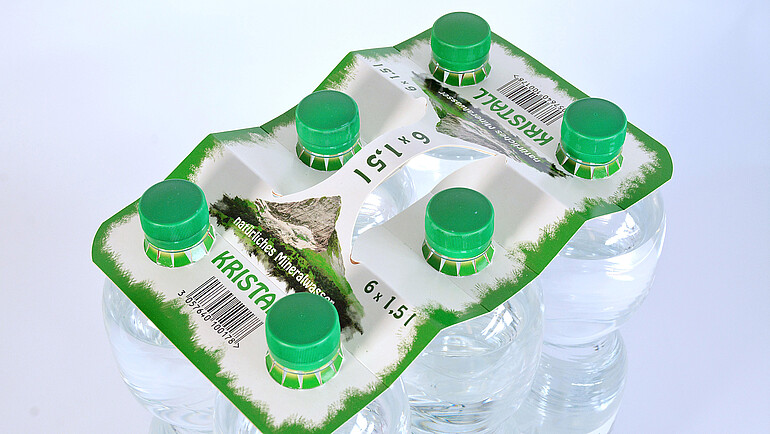
Anyone who wants to reduce plastics in beverage packaging will find enormous potential in the beverage sector. The latest innovation is likely to revolutionise secondary packaging in the beverages segment. ‘LitePac Top’, the box carrier, makes the shrink film previously used to package containers superfluous and, in so doing, avoids plenty of plastic pack after pack. The innovation was developed by Ojenili in collaboration with Krones AG, a system supplier to the beverage industry.
Instead of shrink film for beverage products, a sturdy box holds six-packs of 0.5/0.2 to 2.0 litre PET bottles or beverage cans firmly together. When adapted to the bottle or can design, ‘LitePac Top’ is simply attached to the top and holds half a dozen bottles or cans safely together. Strapping (i.e. a 100% cardboard binding band) provides stability for the 1.5 and 2 litre bottles.
"OJENILI: A Pioneer in Eco-Friendly Packaging Production"
OJENILI, as a family-owned company, has a deep commitment to environmental principles. This commitment is not just a slogan but an integral part of the company's philosophy and operations that has been developed and established over decades. The company's strategy is based on three main pillars: economy, environment, and social responsibility.
OJENILI specializes in developing and producing sustainable cardboard packaging. The company's services cover a wide range of industries, including food, beverages, cosmetics, and hygiene products. The primary goal is to provide packaging solutions that are environmentally friendly and enhance product sales.
By focusing on innovation in sustainable packaging, Ouj Nil not only helps protect the environment but also serves as a model for other companies in the packaging industry. This approach demonstrates how business success can be aligned with environmental responsibility.

